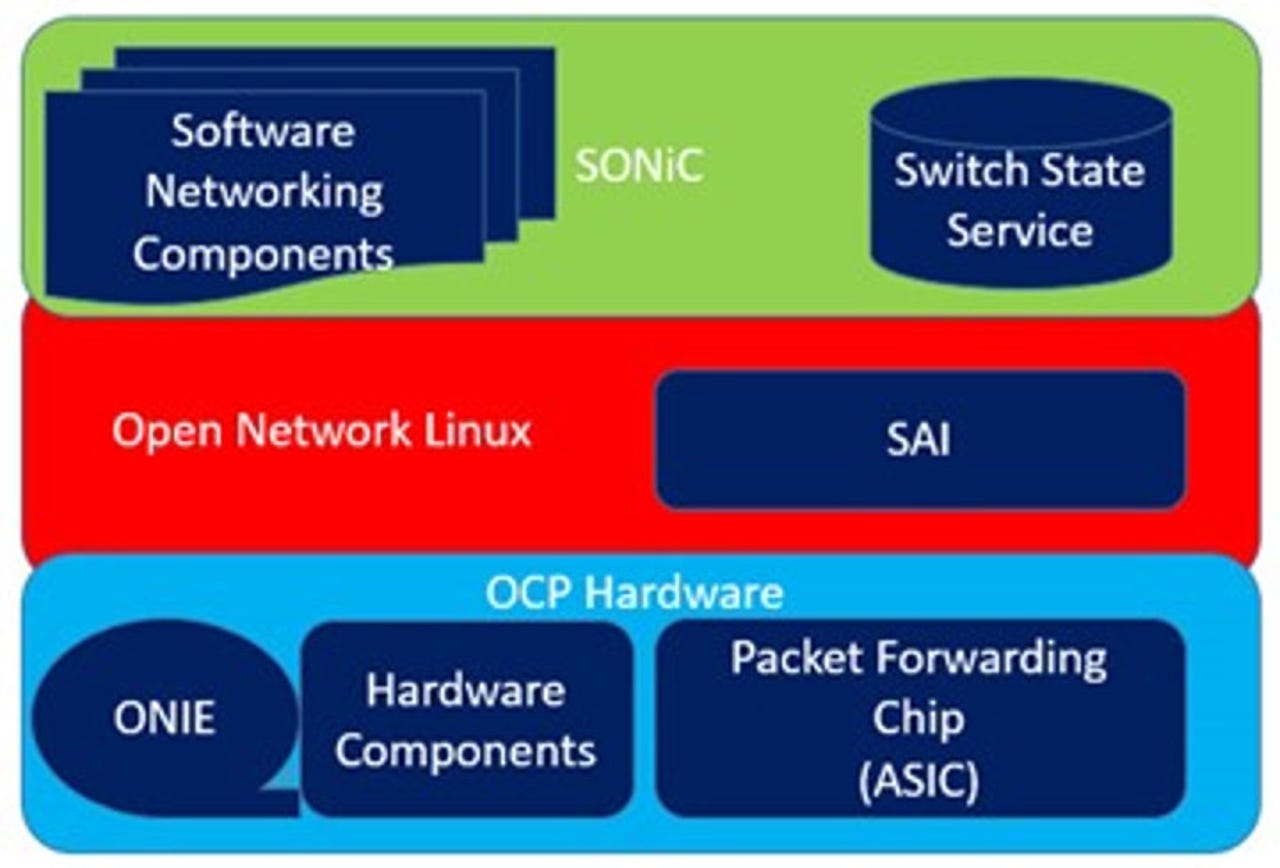SONIC is not, I repeat, NOT a Microsoft Linux distro

Lately, there's been some talk about how Microsoft has delivered its first Linux distribution. But it's not true.

Notice how SONIC is running on top of Linux? It's a Linux networking application, not a Linux distribution.
True, Microsoft has released Software for Open Networking in the Cloud (SONiC).
Mark Russinovich, Microsoft Azure's CTIO explained: "SONiC is a collection of software networking components required to build network devices like switches." Together with SAI (Switch Abstraction Interface) SONiC gives cloud operators "the final piece of the puzzle in delivering a fully open sourced switch platform that can share the same software stack across hardware from multiple switch vendors."
True SONiC requires Linux, but as Microsoft states right upfront in the SONiC GitHub FAQ:
Q. Is SONiC a Linux distribution?
A. No, SONiC is a collection of networking software components required to have a fully functional L3 device that can be agnostic of any particular Linux distribution. Today SONiC runs on Debian.
Now, that's neat, but it's no Linux distribution. This is really just the next natural software-defined networking (SDN) step forward from Microsoft's previous "Linux release:" Azure Cloud Swtich (ACS).
If you want to use SONiC, albeit without any direct Microsoft support, you can. According to the FAQ, "SONiC requires Linux kernel 3.16. We built and tested on Debian Linux, but theoretically any distribution could be supported. It is fully open sourced [under Apache and GPLv2 licenses) and can be customized by users."
Further, Microsoft will release SONiC binaries. To be more precise, "We will build some binaries, use binaries from existing Linux distributions and in some cases just release source code. The getting started guide covers how to build, install and configure SONiC."
Support? You'll need to look to the community. That said, "Microsoft is interested in keeping SONiC relevant, reliable and stable. We run it in our own network."
This is all well and good, but at day's end Microsoft is offering an open-source networking switch stack on top of Linux. That's noteworthy, but it's no "MS-Linux."
Yet.
More Microsoft
What we're seeing now is not Microsoft doing its patented "Embrace, extend, and extinguish" to Linux and open-source software but embracing and monetizing it.
Even former Microsoft CEO Steve Ballmer, who once called Linux a cancer, can see that Microsoft now needs to use Linux rather than abuse it.
To just touch on this year's highlights, Microsoft is releasing SQL Server on Linux; intergating Eclipse and Visual Studio, and it's adding Ubuntu Linux to its Azure Stack hybrid-cloud offering. From here, Microsoft will only continue its love affair with Linux and open-source software.
I expect, based on both Microsoft and Microsoft partner sources, to see Microsoft Dynamics ERP, Exchange Server, and SharePoint Server be made available on Linux on the Azure cloud later this year. Microsoft will also continue to build out client applications on Android. I see no reason to think that Microsoft will put any real energy into applications, such as Skype for Linux, on the Linux desktop. At most Linux desktop users might get a point release of Skype.
Then, towards the end of the year, it's just possible that Microsoft will introduce its own cloud-based Linux server distribution.
Maybe.
Related Stories: